Have you ever wondered, “Are rabbits smart?” Regarding intelligent animals, rabbits might not be the first to come to mind. Known for their twitching noses, large ears, and endearing fluffiness, these charming critters are often dismissed as simple and instinct-driven. But beneath those innocent eyes lies a world of surprising cleverness and curiosity. Join us as we dive into the fascinating rabbit intelligence world, uncovering these delightful animals’ surprising cognitive abilities and emotional depth. Prepare to see rabbits in a new light—smarter and more complex than ever imagined.
Are Rabbits Smart? Discover Their Surprising Intelligence
Rabbits are more than just adorable, fluffy pets. They are intelligent creatures capable of learning tricks, understanding human words, and adapting to environmental changes. Their ability to solve problems and recognize their owners makes them fascinating companions.
When I first got my rabbit, I was amazed at how quickly he picked up litter training and even some fun tricks. Watching him navigate obstacles and respond to my voice showed me the answer to the question, “Are Rabbits Smart?” Their remarkable memory enables them to remember routines and recognize people, fostering a strong bond between the rabbit and its owner.

Key Takeaways
- To explore whether “are rabbits smart,” you need to examine their behavioral evidence, from problem-solving abilities to social dynamics and hierarchies. Rabbits are intelligent animals who can learn various tricks and display good house manners with the right training.
- Rabbits communicate with other rabbits and their human companions using a range of body language signals and vocalizations. They also have remarkable memory skills, allowing them to remember significant locations and recognize individuals.
- Rabbits flourish with mental stimulation and physical activities. Offering a variety of toys, engaging in creative playtime, and creating a stimulating environment can keep your rabbit mentally and physically happy.
- Caring for an intelligent rabbit involves meeting their emotional and cognitive needs while understanding the unique challenges of maintaining a smart pet. Ensuring they have mental stimulation, social interaction, and safe exploration opportunities is key to their well-being.
Are Rabbits Smart: Understanding Rabbit Intelligence
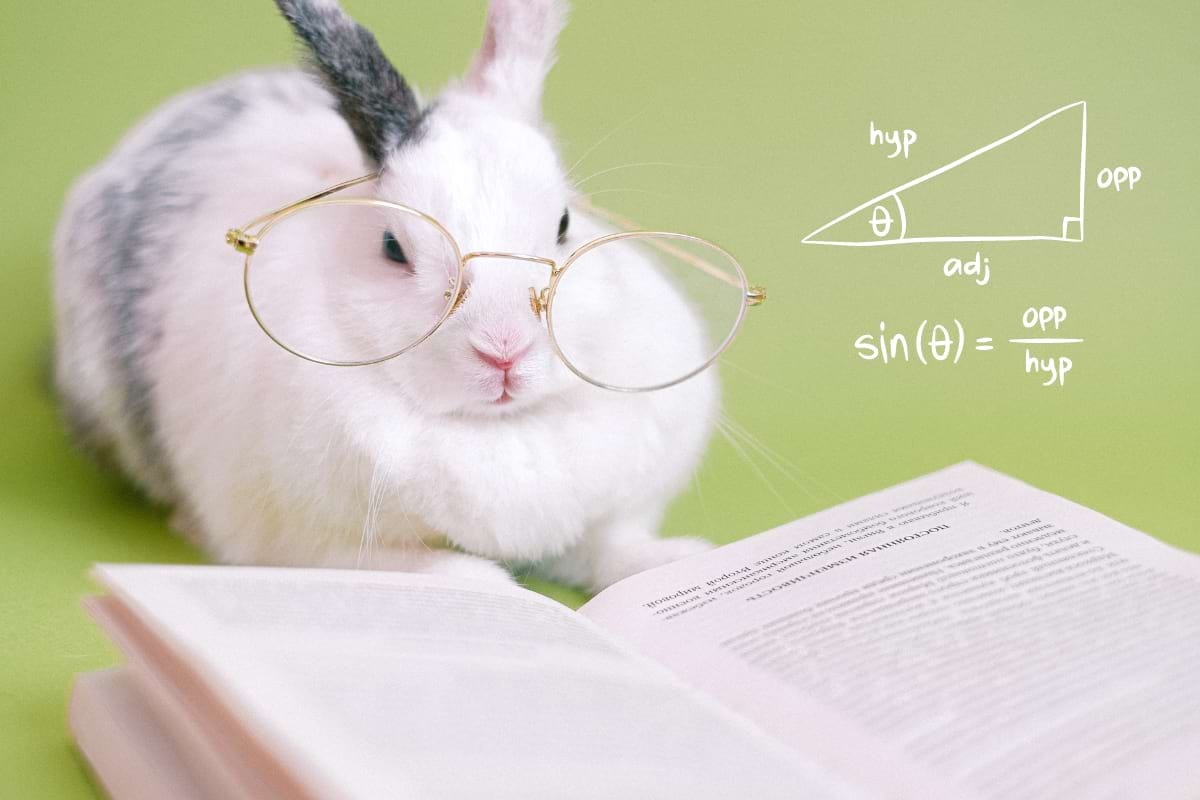
Rabbits are often underestimated when it comes to their cognitive abilities. We can appreciate how smart these little creatures are by looking at how animal intelligence is defined and dispelling common myths.
Definitions of Intelligence in Animals
Animal intelligence includes a range of behaviors and abilities. For rabbits, this means spatial learning, problem-solving, and the ability to interact socially. They can navigate mazes, respond to commands, and remember food locations.
Rabbits have a brain-to-body mass ratio of about 1:40, higher than many other mammals. This ratio indicates a capacity for complex behaviors and learning. Training rabbits to do tricks and navigate obstacles is fun and indicates their mental capabilities. When I engage with my pet rabbit, I notice how quickly it picks up on new routines and cues.
Common Misconceptions About Rabbit Cognition
Many think that rabbits are just simple, easily frightened animals. This isn’t true. While they may seem skittish, they are quite observant and quick to learn.
People often underestimate their memory. My rabbit, for instance, recognizes family members and gets excited when familiar faces approach.
Another misconception is that rabbits can’t be trained. This is false. Rabbits can learn to use litter boxes, come when called, and even perform agility activities like Kaninhoppning.
In reality, their intelligence is comparable to that of cats and dogs. Engaging with them daily shows how adaptable and clever they truly are.
Behavioral Evidence of Rabbit Intelligence
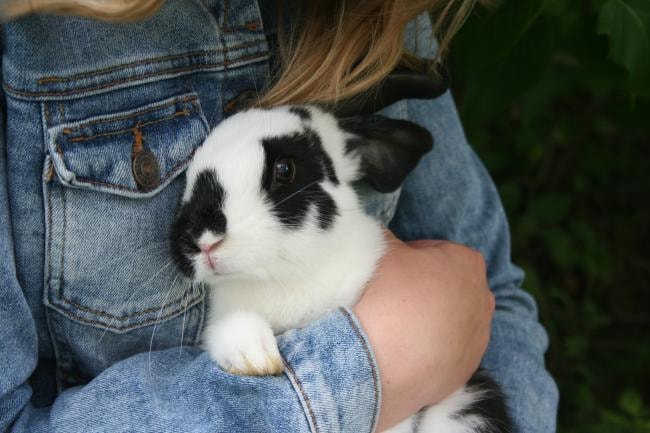
To answer the question “Are rabbits smart,” you must first understand their behavioral evidence.
Problem-Solving Abilities
Rabbits are known for their ability to solve problems effectively. I’ve seen rabbits navigate mazes and find hidden treats, proving their knack for overcoming obstacles. They can open latches and learn how to get to their food, showing great determination and cognitive skills.
In rabbit show jumping competitions like Kaninhoppning, they demonstrate agility and training by jumping over hurdles and running through tunnels. These activities require quick thinking and learning, highlighting their problem-solving capabilities.
You can also train them to use litter boxes. This shows they understand and remember patterns, which makes them easier to care for.
Adaptation to Environments
Rabbits thrive in diverse environments. In the wild, they develop survival strategies to evade predators. Their burrowing behavior is a prime example of their ingenuity. They dig complex tunnel systems to create a safe living space.
Domesticated rabbits also adjust well to indoor and outdoor settings. They’re curious and explore their surroundings, often rearranging their living spaces. This adaptability extends to learning routines and commands, making them engaging pets.
They can be trained to follow specific routines, such as coming when called or performing tricks. This reflects their ability to adapt to human interaction and structured environments.
Social Dynamics and Hierarchies
Rabbits form intricate social structures. They live in groups with clear hierarchies in the wild, helping maintain order and reduce conflicts.
Within these groups, dominant and subordinate relationships are established, often observed through grooming and other social behaviors.
Even domesticated rabbits exhibit social dynamics. They bond with humans and other pets, often showing affection through nuzzles and nudges.
In multi-rabbit households, rabbits may establish a pecking order similar to their wild counterparts. Observing these behaviors helps us understand their social intelligence and need for companionship.
Did You Know?
New technology like brain imaging allows us to see inside a rabbit’s brain. This can show us how they process different tasks and challenges.
Are Rabbits Smart: Training and Learning
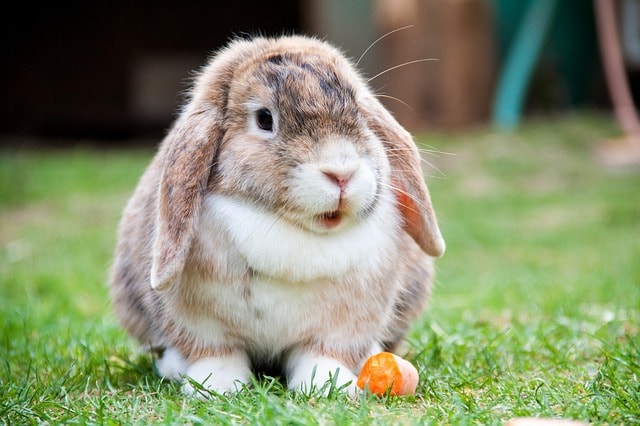
Rabbits are intelligent animals who can learn various tricks and exhibit good house manners with the right training. I’ll share how you can teach your bunny tricks and commands and litter trains them to keep your home tidy.
Teaching Tricks and Commands
Rabbits, like dogs, can learn to follow commands and perform tricks. It’s all about using positive reinforcement.
I recommend using small treats to reward your bunny each time it responds correctly. Start with simple commands like “come” or “sit”. Hold their favorite treat and call them by name. When they come to you, give them the treat immediately. Repeat this process daily until the bunny responds without hesitation.
For tricks like jumping through hoops, hold a hoop and guide your rabbit through it with a treat. Gradually, they’ll associate going through the hoop with getting a treat. Practice regularly with patience and consistency.
Litter Training and House Manners
Litter training is essential for keeping your home clean. Place a litter box in your rabbit’s enclosure with one or more hay-filled corners. Watch where your bunny tends to relieve itself and place the litter box there.
Encourage your rabbit to use the box by collecting some of its waste and placing it inside it. This helps them recognize the box as the right place. When they use it, offer a reward.
Besides litter training, teach your bunny house manners, like not chewing on furniture. Provide plenty of chew toys and redirect them when they start on something they shouldn’t. Praise them when they choose their toys over your belongings. Consistent reinforcement helps them learn proper behavior.
Are Rabbits Smart: Communication and Interaction
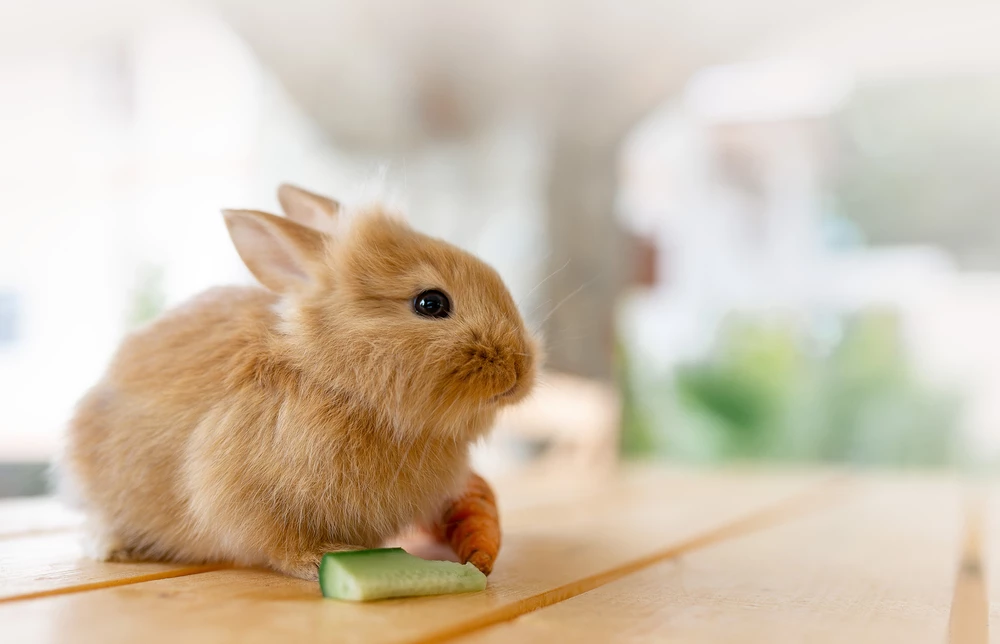
Rabbits use a variety of body language signals and vocalizations to communicate with each other and their human companions. These expressive actions help them convey their feelings and intentions clearly.
Understanding Rabbit Body Language
Rabbits are very expressive with their bodies. For example, a rabbit thumping its hind legs signals danger. I often see my rabbit do this when there is a loud noise or sudden movement.
On the other hand, a gentle nose nudge shows affection. It’s like their way of saying hello or checking in. When rabbits are relaxed, they might grind their teeth softly, similar to purring in cats. This grinding indicates they are calm and content.
Sometimes, bonded rabbits will chase each other. This happens if one rabbit offends the other. It’s their way of showing disagreement or setting boundaries.
Vocalizations and What They Mean
While rabbits are generally quiet, they do make some noises. A common sound is a gentle humming or buzzing, often made by a male rabbit when he’s feeling amorous.
Another sound is a high-pitched scream. This is rare but very alarming. It usually happens if the rabbit is terrified or in extreme pain. Hearing a scream means something seriously wrong, and immediate attention is needed.
Rabbit Memory and Recognition
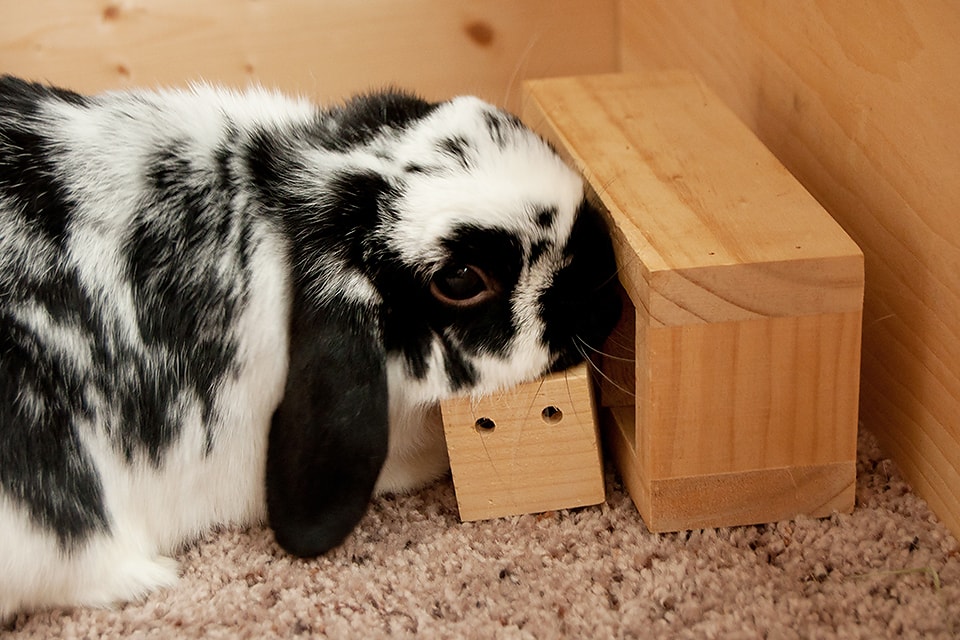
Are Rabbits Smart? Rabbits have impressive memory skills, allowing them to recognize significant locations and individuals. Their abilities help them navigate their environments and maintain social bonds.
Spatial Memory in Rabbits
Rabbits can remember their way around very well. They can recall where to find food, water, and shelter. This skill is crucial for them to avoid predators and find safe spots.
I once noticed my rabbit figured out how to navigate back to its cage from the other side of the house. This made me realize just how sharp their spatial memory could be. They use landmarks and other cues to map out their space.
Their sharp spatial memory also means they get familiar with their homes and any changes made. This trait helps them feel secure and comfortable in their environments.

Recognition of Individuals
Rabbits can recognize people and other animals. They remember faces and voices over long periods. This makes them capable of forming strong bonds with their owners.
Interestingly, they have a good sense of smell, which helps them identify different humans and animals. This ability plays a significant role in interacting and reacting to familiar and unfamiliar individuals.
Moreover, they can even hold grudges or remember positive experiences with people. This behavior shows not only their memory but also their emotional depth. Seeing how they respond to different people based on past interactions is amazing.
Are Rabbits Smart: Enrichment and Mental Stimulation
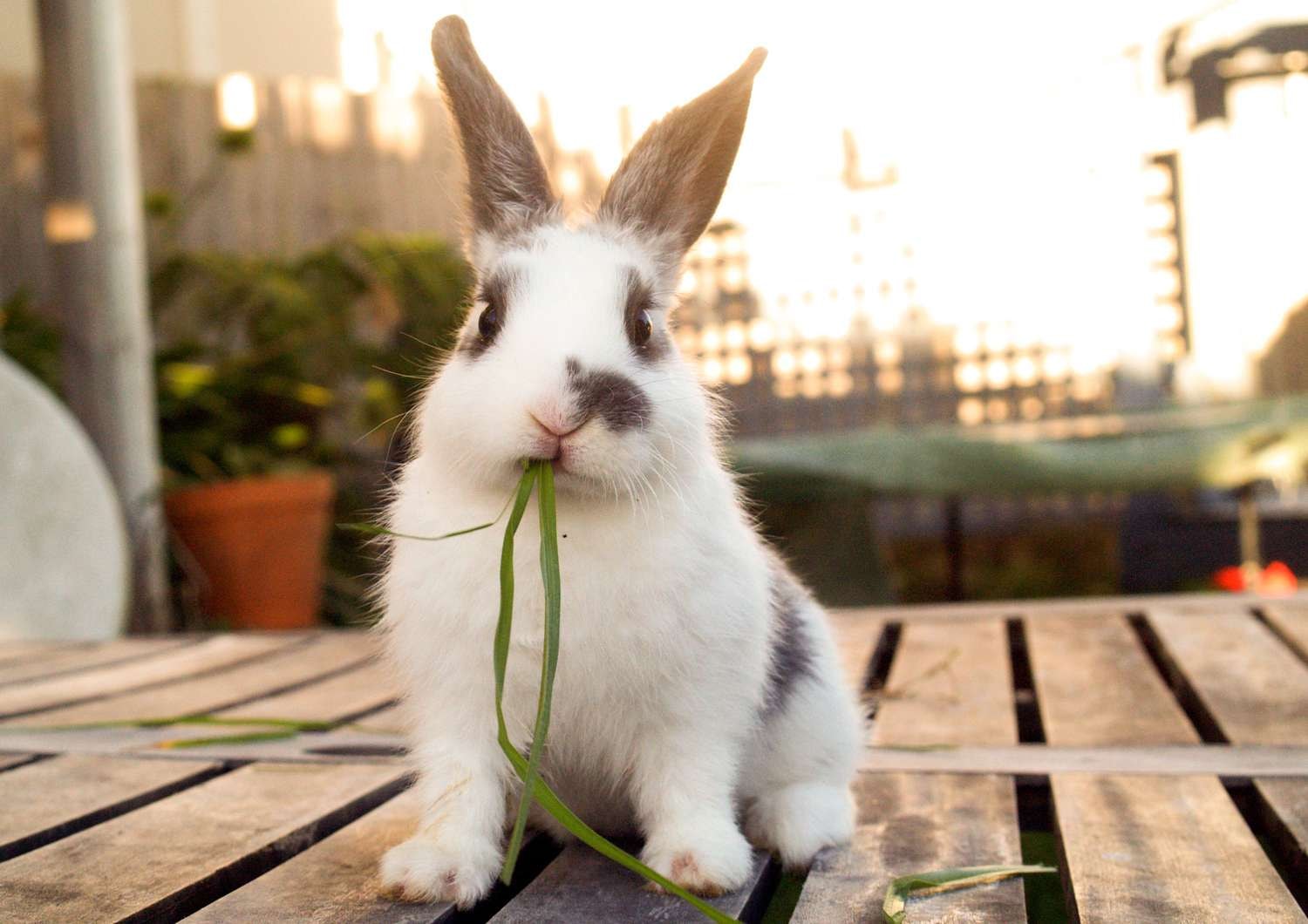
Rabbits thrive when given mental stimulation and physical activities. Providing toys, creative playtime, and a stimulating environment can keep your rabbit engaged and happy.
Toys and Playtime Ideas
Rabbits love to play and explore. Simple toys can keep their minds active. For example, cardboard boxes and paper towel rolls are great for chewing and hiding.
Interactive toys like treat-dispensing balls make playtime challenging and fun. Chewing toys made of safe materials like untreated wood or hay blocks helps keep their teeth healthy and minds busy.
Playing games with your rabbit, like hide and seek or gentle tug-of-war with a soft cloth, can also be enriching. Regular, varied playtime builds a strong bond.
Creating a Stimulating Environment
A rabbit’s environment should be safe yet stimulating. Creating makeshift burrows and tunnels can mimic their natural habitats. Space is crucial. Allow your rabbit time outside their cage to explore and hop around.
Supervised outdoor time in a secure area is also beneficial. Social interactions with you or even a rabbit partner can enhance mental engagement. Introduce new objects or rearrange their space occasionally to keep things interesting.
Adding climbing structures or platforms can also provide physical and mental challenges. Small changes in their environment can make a big difference.
Caring for a Smart Rabbit
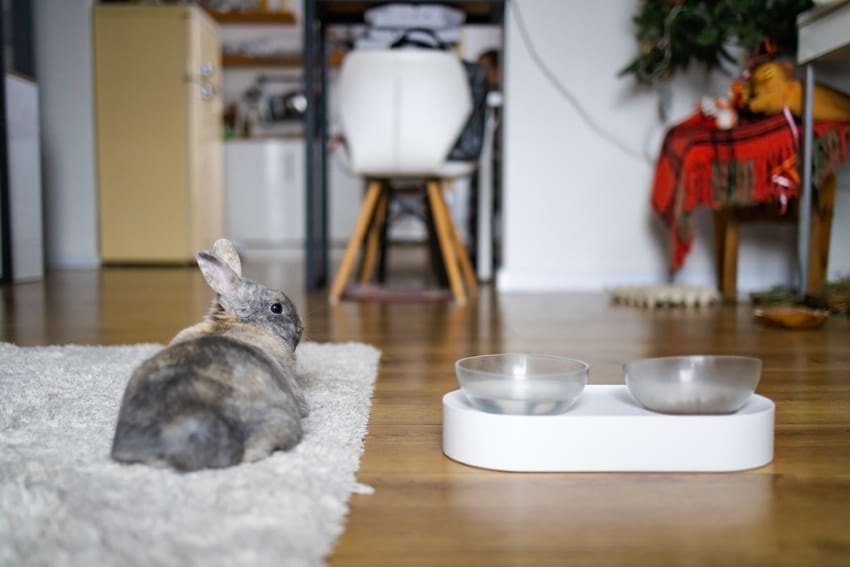
Caring for a smart rabbit involves meeting their emotional and cognitive needs and understanding the challenges of keeping such intelligent pets.
Meeting Emotional and Cognitive Needs
Rabbits need mental stimulation to stay happy and healthy. Make sure to provide a variety of toys and puzzles that they can engage with. These toys can be as simple as cardboard boxes, tunnels, or treat-dispensing gadgets.
Interactive playtime is essential. I spend time playing with my rabbit, teaching them tricks, or simply letting them explore new environments.
Training sessions can be fun and rewarding for both of us, as rabbits can learn to follow commands and do tricks with proper guidance and patience. Social interaction is another key aspect. Rabbits thrive on company, whether from humans or fellow rabbits.
Challenges of Keeping Intelligent Rabbits
Caring for an intelligent rabbit comes with challenges. They are naturally curious and can often be escape artists, figuring out how to open cages or navigate barriers. I always rabbit-proof their play area to ensure their safety.
Another challenge is preventing boredom, which can lead to destructive behaviors such as chewing on furniture or digging. I rotate their toys regularly and introduce new challenges to stimulate their environment. Puzzle toys or foraging activities can help keep their minds engaged.
Lastly, an intelligent rabbit requires more attention and care. They can develop behavioral issues if their needs are unmet, so I vow to stay committed to their well-being. This means regular playtime, social interaction, and monitoring their health closely to prevent any issues from escalating.

Here’s an additional video about rabbit intelligence.
By: OneMorePlease
The Surprising Intelligence of Rabbits
So, are rabbits smart? The answer is a resounding yes. Throughout our exploration of rabbit intelligence, we’ve uncovered that these charming creatures are far more than just cute and cuddly pets. Rabbits exhibit impressive problem-solving skills, adapt to their environments, and form complex social bonds, all highlighting their cognitive and emotional depth.

From their ability to learn tricks and recognize their owners to their impressive memory and spatial awareness, rabbits showcase intelligence that often goes unrecognized. Their interactions with us reveal a capacity for learning and a genuine emotional connection. They remember faces, navigate obstacles, and engage in play and exploration with enthusiasm and curiosity.
Understanding rabbit intelligence opens new ways to enrich their lives through mental stimulation and interactive play. These adorable animals are capable of more than we might have initially thought.
By appreciating the full range of their abilities, we can provide better care for our furry friends and enjoy a deeper, more fulfilling companionship with them. The next time you ask, “Are rabbits smart?” remember that the answer lies in observing and appreciating their surprising intelligence and emotional complexity.
Frequently Asked Questions
How Do Rabbits Compare to Dogs in Terms of Intelligence?
Rabbits and dogs show their smarts differently. Dogs often follow commands and work closely with humans. Rabbits, on the other hand, are great at learning tricks, solving puzzles, and understanding their environment more independently.
In What Ways Do Rabbits Exhibit Intelligence?
Rabbits can learn tricks, use litter boxes, and navigate mazes. They respond to their names and simple commands.
They are curious and explore their surroundings with a keen sense of awareness. Some rabbits even show problem-solving skills by figuring out how to open enclosures.
How Does the Intelligence of Wild Rabbits Differ From Domestic Rabbits?
Wild rabbits adapt their intelligence to survive. They are excellent at evading predators and finding food. Domestic rabbits, while also smart, often focus their intelligence on interacting with humans and learning tasks that their wild counterparts wouldn’t need, like using a litter box.
Come Hop with Us on Social Media!
Do you adore your bunny? So do we at The Rabbit Hop!
Find us online for:
- Bunny Fun: Cute videos, interesting facts, and tips for keeping your bunny happy!
- Top Product Reviews: Find out what’s best for your fluffy friend.
- Bunny Community: Meet and connect with other bunny lovers just like you
Follow us on:
Let’s make your bunny the happiest hopper on the block!



